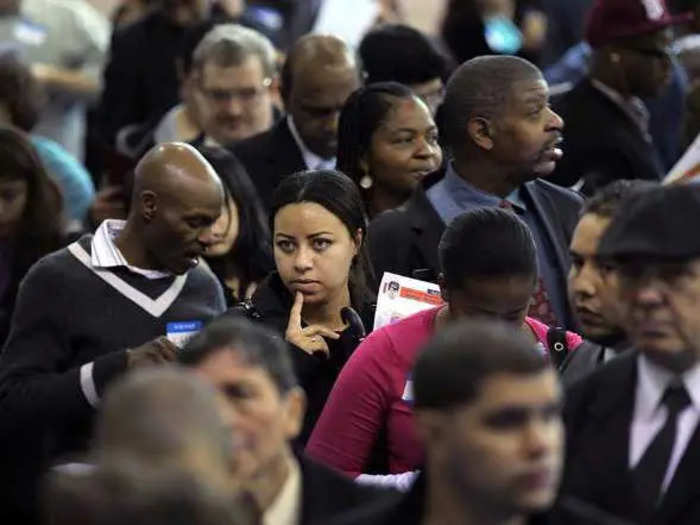
"In one line: Worse—an order of magnitude worse—to come," Ian Shepherdson, chief economist at Pantheon Macroeconomics, wrote in a note Thursday.
"The consensus was a bad joke but the initial hit from bar and restaurant closures was bigger still than we expected. Next week's number, however, will be an order of magnitude worse. Media reports from around the country make it clear that claims have rocketed since bars and restaurants started to close in large numbers over the weekend, in some cases by a factor of 10 or more."
"Our tentative forecast for next week is two-to-three million claims. We hope that will be the single worst week, but we can't be sure."

"This morning's jobless claims are some of the highest we've experienced in the past few years," Mike Loewengart, managing director of investment strategy at E*Trade, told Business Insider in an email. "It's likely the first of many cracks we're about to see in our economic foundation with states like California and Washington the hardest hit."
"As more states batten down the hatches, we could start to see this number change significantly in just the course of one week. More importantly, the consumer is the heartbeat of the American economy. And as they tamper discretionary spending or even shift excess income to consumer staples or emergency savings, this will likely have a butterfly effect on other sectors like retail or housing."

"With jobless claims spiking already (280k vs 220k expected) it sets a bad tone for the economy, although at this point most people are expecting a huge shock going forward, so what's more important will be policy – especially fiscal stimulus," Chris Zaccarelli, chief investment officer for Independent Advisor Alliance, told Business Insider in an email.
"It's guaranteed that Q2 will be a negative GDP number and unemployment will jump, but there is still time to put the correct policies and programs in place to try and salvage the rest of the year."
"Covid-19 will remain a crisis for months and self-quarantine is going to have a huge negative impact on consumer spending, employment and economic activity. The government needs to come together and work with the private sector in order to get us through the public health crisis and mitigate, as much as possible, the recession that we've likely already entered."

"The NBER defines a recession as a significant decline in real GDP lasting more than a few months, which is also evident in employment, industrial production and other measures," wrote Jonathan Golub, chief US equity strategist for Credit Suisse Securities, in a Thursday note.
"With GDP reported quarterly, and the Jobs Report monthly, much of the most important data is problematically lagged. While the most recent Unemployment Rate does not yet capture impacts of the virus, today's Weekly Jobless Claims (firings) does. We expect this important data series to continue to deteriorate, and believe it warrants specific attention."
 Acer launches its consumer electronics brand Acerpure in India
Acer launches its consumer electronics brand Acerpure in India
 Salt-less KKR take on Sunrisers Hyderabad in power-hitting slugfest
Salt-less KKR take on Sunrisers Hyderabad in power-hitting slugfest
 Freecharge’s productivity revolution – unleashing efficiency across teams
Freecharge’s productivity revolution – unleashing efficiency across teams

Copyright © 2024. Times Internet Limited. All rights reserved.For reprint rights. Times Syndication Service.